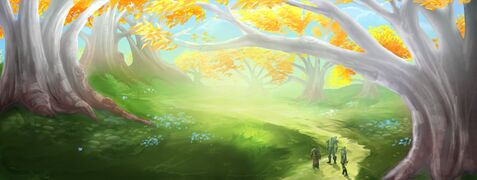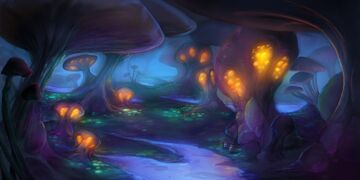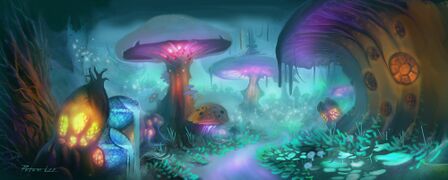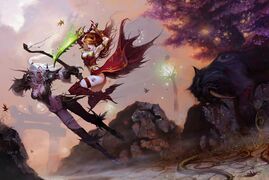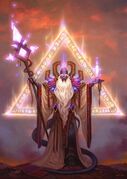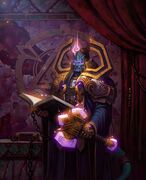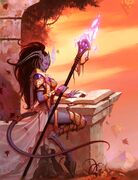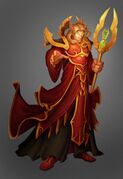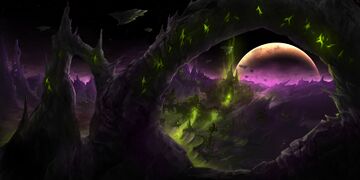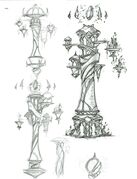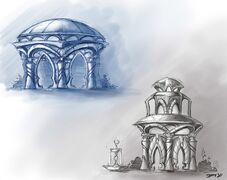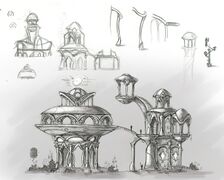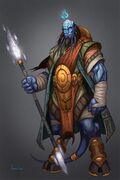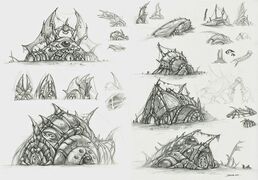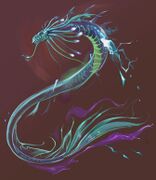World of Warcraft: The Burning Crusade
- For other uses, see Burning Crusade (disambiguation).
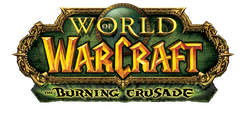 World of Warcraft: The Burning Crusade | ||||
| Developer(s) |
Blizzard Entertainment Team 2 | |||
|---|---|---|---|---|
| Publisher(s) | Blizzard Entertaiment[1] | |||
| Designer(s) |
Rob Pardo Jeff Kaplan Tom Chilton | |||
| Composer(s) |
Russell Brower Matt Uelmen Derek Duke | |||
| Platforms | Microsoft Windows, Mac OS X | |||
| Release | ||||
| Latest release | 2.4.3 | |||
| Genre(s) | Expansion pack | |||
| Mode(s) | Multiplayer | |||
|
| ||||
World of Warcraft: The Burning Crusade (abbreviated as TBC or BC) is the first expansion for World of Warcraft. It was announced on 28 October 2005 and released on 16 January 2007 in North America, Europe, and Australia; 2 February 2007 in Korea; 3 April 2007 in Taiwan and Hong Kong; and 6 September 2007 in mainland China.
Its main features included the addition of Outland, the orcish home world where players would level to the increased of the level cap of 70, the introduction of the blood elves and the draenei as playable races, along with many new dungeons, items, quests, and monsters.
This expansion was offered in two versions: Standard Edition and Collector's Edition.
On 29 June 2011, the expansion was integrated into the basic World of Warcraft package, granting all subscribers access to all of the content and features of the expansion at no additional cost.[3]
Release information
In preparation for The Burning Crusade, Blizzard Entertainment released patch 2.0.1 in North America and Europe on 5 December 2006. This patch introduced some of The Burning Crusade's content prior to the release of the expansion itself — including a revamp of the honor system, skirmish Arena matches, and a new Looking For Group interface.
The expansion was released in standard as well as Collector's Edition packages. The Collector's Edition of The Burning Crusade included a bonus Behind-The-Scenes DVD, an in-game Netherwhelp pet and many other exclusive extras. Installing the expansion was backwards compatible — players were still able to log on to non-BC accounts using the new Burning Crusade client.
System requirements for both editions remained virtually unchanged compared to the original World of Warcraft, with the notable exception of the increase in the required network bandwidth (from 56k dial-up to a "broadband connection"). Blizzard stated that the change was due to the size of the future patches, and that it would continue to offer tech support to players with dial-up, except for patching issues.
Lore
The quests in The Burning Crusade are set in continuity with original lore quests, meaning the expansion is the direct sequel to the original World of Warcraft. Some quests set in Outland, especially those that are related to Illidan, mention a five-year hiatus in the storyline[citation needed] , which suggests a one-year interval between The Burning Crusade and the original game.
The expansion introduces Outland, the former world of Draenor, and numerous quests inviting players to explore the world on their own. The main storyline points to Illidan the Betrayer and what happened to him during the last four years. Players can also complete quests that involve either aiding Illidan or making preparations for his downfall.
In addition, there are many links between the former world of Draenor and the current Outland, such as the opening of the Dark Portal by Medivh, which is relived in the Caverns of Time, and various quest chains which provide insight into the history of the old Orcish shamans and their relationship with Burning Legion long before the First War.
The Burning Crusade also centers on the two new playable races and their affiliation to the game's storyline. Many plot holes are filled with quests that align the blood elves with the Horde and the draenei with the Alliance — as such, players still must complete quests in the old world to fully understand the lore related to Outland.
New races
The Burning Crusade introduced two new playable races:
- Blood elves — A faction of former Alliance members join the Horde in the expansion. They are led by Regent Lord Lor'themar Theron. The blood elf capital is Silvermoon City. Their racial mount is the bird-like hawkstrider and their language is Thalassian.
- Draenei — A faction of uncorrupted eredar join the Alliance. They are led by their prophet, Velen. The draenei capital city is the Exodar. Their racial mount is the elephant-like elekk and their language is Draenei.
The expansion also allows previously faction-exclusive classes to be played on the opposing faction, with the inclusion of blood elf paladins for the Horde and draenei shaman for the Alliance.[4]
New mounts
Each new race received its own unique mount:
- Blood elf — A hawkstrider (originally called a cockatrice[5]). These mounts can be found outside the entrance to Silvermoon City. Blood elf paladin mounts, are the same as Alliance though they are red instead of the Alliance blue.
- Draenei — An elekk. These mounts can be found outside The Exodar.
New rare mounts are also available as drops from raid instances such as Karazhan.
Flying mounts
Flying mounts were a new addition with The Burning Crusade, and were only usable in Outland at level 70. The Horde and Alliance have the wyvern and gryphon, respectively, as standard mounts. The epic mounts are the armored wyvern and armored gryphon.
In addition, there are also rare flying mounts such as the ![]() [Swift Nether Drake].[6] An armored nether drake could be obtained by ranking in the top 0.5% at the end of an Arena season, and the unarmored netherdrake can be obtained through a series of quests. Patch 2.1.0 also introduced the nether ray mounts.
[Swift Nether Drake].[6] An armored nether drake could be obtained by ranking in the top 0.5% at the end of an Arena season, and the unarmored netherdrake can be obtained through a series of quests. Patch 2.1.0 also introduced the nether ray mounts.
Basic flying mount training costed 225![]() and the mount costed 50
and the mount costed 50![]() . Training for flying mounts required a riding skill of 150 (epic mount) and brought it up to 225. The epic version of the flying mount cost 5,000
. Training for flying mounts required a riding skill of 150 (epic mount) and brought it up to 225. The epic version of the flying mount cost 5,000![]() for the training and 100
for the training and 100![]() for the mount. Training for epic flying mounts required 225 skill and upgraded it to 300. Faction reputation discounts apply to the prices.
for the mount. Training for epic flying mounts required 225 skill and upgraded it to 300. Faction reputation discounts apply to the prices.
Druids received ![]() [Flight Form] at level 60, which would offer the ability to fly and had a speed equivalent to a normal flying mount.[7] Druids obtained a quest at level 70 to obtain an epic flight form.[8] Purchasing riding skill 300 was a requirement for the quest.[9]
[Flight Form] at level 60, which would offer the ability to fly and had a speed equivalent to a normal flying mount.[7] Druids obtained a quest at level 70 to obtain an epic flight form.[8] Purchasing riding skill 300 was a requirement for the quest.[9]
Character changes
New spells and talents
In the expansion, Blizzard added five to six new spells for the 60-70 level range to each class in order to round out the classes better. The talent trees were also greatly expanded and revised. All classes had additional talents leading up to a 41 talent point ability.[10] Players gained new spells at every level from 60-70 instead of every two levels.
Because the Paladin and Shaman classes were no longer unique to either faction, Blizzard added new abilities to each class to make them what they truly feel they should be: Paladins received a long-awaited spell, ![]() [Righteous Defense] (a long-range, mass taunt-like ability); and Shamans received the spell
[Righteous Defense] (a long-range, mass taunt-like ability); and Shamans received the spell ![]() [Bloodlust] (a long-cooldown, powerful buff) to complement their DPS and utility roles.[11]
[Bloodlust] (a long-cooldown, powerful buff) to complement their DPS and utility roles.[11]
Combat rating system
- Main article: Combat rating system
With the release of The Burning Crusade, critical strike, defense, hit rate, spell critical, and dodge stats as well as a new stat, resilience, changed from being absolute percentages to ratings, with each player level requiring more rating points to achieve the same absolute percentage.[12]
New zones
Zone listings include both the level at launch, and the modern level post level squish.
New starting areas
With the blood elves addition along with them came two new starting areas located in the Eastern Kingdoms:
- Eversong Woods — Levels 1-10 (now levels 1-30)
- Ghostlands — Levels 10-20 (now levels 1-30)
Similarly, the draenei have two starting zones off the western coast of Kalimdor:
- Azuremyst Isle — Levels 1-10 (now levels 1-30)
- Bloodmyst Isle — Levels 10-20 (now levels 1-30)
Although these starting areas are considered part of Azeroth, and appear on its world map, they are implemented in one or more separate instances. Thus, when riding or walking from other old world zones (such as the Eastern Plaguelands), you must pass through an instance portal to enter them. Furthermore, players cannot fly in these zones.
New continent
The expansion brought the addition of Outland, an entirely new world, reachable through the Dark Portal in the Blasted Lands and portals in several major cities. Interactive maps and otherwise detailed maps are available for use.[13][14]
Outland contains the following zones:
- Hellfire Peninsula — Levels 58-63 (now levels 10-30)
- Zangarmarsh — Levels 60-64 (now levels 10-30)
- Terokkar Forest — Levels 62-65 (now levels 15-30)
- Nagrand — Levels 64-67 (now levels 15-30)
- Blade's Edge Mountains — Levels 65-68 (now levels 20-30)
- Netherstorm — Levels 67-70 (now levels 25-30)
- Shadowmoon Valley — Levels 67-70 (now levels 25-30)
New high-level dungeons
The Burning Crusade added several dungeons in both in Outland and Azeroth, most with separate wings to make complete runs faster. The dungeons contain a plethora of new equipment including Tier 4 , Tier 5 and Tier 6 armor pieces.
Azeroth
- Karazhan in Deadwind Pass
- Caverns of Time in Tanaris
- Zul'Aman in Ghostlands (added in patch 2.3)
- Isle of Quel'Danas in Quel'Thalas (added in patch 2.4)
Outland
- Hellfire Citadel, located on the Hellfire Peninsula
- Coilfang Reservoir in the Zangarmarsh
- Auchindoun in the Terokkar Forest
- Tempest Keep outside Netherstorm
- Gruul's Lair in the Blade's Edge Mountains
- Black Temple in the Shadowmoon Valley
Raid and instance changes
All Burning Crusade raids had new caps not exceeding 25 players (with older raids remaining at a 40 player cap). This was done to allow a greater number of players to participate in epic raids, and to allow more flexibility in the design of encounters.
In addition, high level instances received a feature allowing players to have the option to run the instances at two different difficulty levels: Normal and Heroic. This would turn normal level 60-70 instances into much harder level 70 instances with better loot. The final boss of every hard mode instance was planned to drop epic items, and every boss in hard mode instances drops tokens to get special gear available in Shattrath. These instances were marked with a purple portal.[15]
Profession changes
Jewelcrafting and socketed items
- Main article: Jewelcrafting
The addition of Jewelcrafting allowed players to start crafting rings, trinkets, necklaces, and special jewels that can be used in specific items, called Socketed Items.
New specializations and profession abilities
The Burning Crusade added a new level of profession past Artisan (300) called Master (375). Due to racial bonuses, this could be maxed to 390 (for gnomish engineers, draenei jewelcrafters, tauren herbalists, and blood elf enchanters).
Characters were also able to take advantage of new specializations within each profession as well as many new recipes, enchantments, patterns, and schematics.
New Player versus Player features
Eye of the Storm
A battleground was added, Eye of the Storm, and is based in Outland. This battleground features a mix of holding territory and capture the flag styles of gameplay.
Each team has 15 members, and would range from levels 61-69, 70-79, 80-84, and 85, each in their own bracket.
Team PvP Arena
- Main article: Arena PvP System
Following the introduction of Arena PvP, level 70 players are able to win prizes in these matches. The rewards for the arena was on par with even the most powerful PvE rewards. The Burning Crusade came with three Arenas: The Ring of Trials in Nagrand, the Circle of Blood in Blade's Edge Mountains, and the Ruins of Lordaeron, above Undercity.
New creatures
- Humanoids
 Arakkoa
Arakkoa Broken
Broken Dire orc (2.1)
Dire orc (2.1)


 Draenei
Draenei Ethereal
Ethereal
 Felblood elf (2.4)
Felblood elf (2.4)
 Fel orc
Fel orc Lobstrok
Lobstrok


 Mag'har orc
Mag'har orc Naga lord (2.1)
Naga lord (2.1) Naga sea witch
Naga sea witch Rock flayer
Rock flayer Sand gnome (look exactly the same as regular gnomes)
Sand gnome (look exactly the same as regular gnomes) Sporeling
Sporeling Wretched
Wretched
- Demons
 Abyssal
Abyssal Annihilan
Annihilan Fel beast (demonic type)
Fel beast (demonic type) Fel imp
Fel imp Helboar
Helboar
 Man'ari eredar
Man'ari eredar Mo'arg engineer
Mo'arg engineer

 Observer
Observer Shivarra
Shivarra Terrorguard
Terrorguard Wrathguard
Wrathguard
- Giants
- Beasts
 Clefthoof
Clefthoof Dragonhawk
Dragonhawk Dread raven
Dread raven
 Elekk
Elekk Firefly
Firefly
 Hawkstrider
Hawkstrider Kraken
Kraken Lynx
Lynx Mana wyrm
Mana wyrm Moth
Moth Nether ray
Nether ray Ravager
Ravager Skunk
Skunk Spore walker
Spore walker Sporebat
Sporebat Talbuk
Talbuk Warp stalker
Warp stalker Wolpertinger (2.2.2)
Wolpertinger (2.2.2)- Outland beast variants:
- Dragonkin
- Undead
- Elemental
- Mechanical
 Arcane golem
Arcane golem
 Fel golem (2.4)
Fel golem (2.4)
 Arcane titan
Arcane titan Clockwork robot (2.3)
Clockwork robot (2.3) Fel reaver
Fel reaver
- Aberration
- Uncategorized
Voice acting
Contrary to the popular belief that Blizzard Entertainment did not bring back any of the original voice actors, in actuality almost half of them were brought back.
In Battle for Mount Hyjal, the voice actors of Thrall and Tyrande were their original voice actors in Warcraft III; Azgalor and Rage Winterchill didn't have speech in Warcraft III; Archimonde's voice actor remains the same (although he sounds different - it is probable that Blizzard used different modulations for the voice). Anetheron's voice actor was changed but likely because of his minor role in Warcraft III (with just three quotes[16]) Blizzard wasn't able to find him.
Illidan's original voice actor, Matthew Yang King, was changed due to guild union reasons. But his lieutenants Kael'thas and Lady Vashj were kept with the original voice actors. Akama's voice actor was changed probably for his minor role in Warcraft III (with just the gag quotes and two cinematic speeches[17][18]). And Maiev's original voice actor was brought back.
Kil'jaeden's and Magtheridon's voice actors weren't brought back, probably for their minor roles in Warcraft III (with Magtheridon just having two quotes[18] and Kil'jaeden appearing only in two interludes[19][20]).
The voice actors for the heroes of the Alliance Expedition were not changed either; instead, they were given the default human/dwarven NPC voices. However, Khadgar's voice actor was altered in News From Outland: Crisis at Da Portal! official video. The Horde of Draenor hero's voice actors were changed, Kargath's voice actor used to be Bill Roper but he left Blizzard years before the release of The Burning Crusade, while Teron Gorefiend's voice actor was changed for unknown reasons.
Rexxar's and Nazgrel's voices are also the default voice of the orcs. The introduction of Zul'Aman in patch 2.3.0 gave Zul'jin a unique voice actor for the first time in The Burning Crusade (in Warcraft II, his character used the default troll axe thrower voice).
Medivh's voice actor was changed from Michael Bell to Cam Clarke for unknown reasons. Additionally, Sylvanas's original voice actress Piera Coppola did not sing Lament of the Highborne.
| Character | Original voice actor | Burning Crusade voice actor | Changed? |
|---|---|---|---|
| Akama | Unknown | Steve Blum | Yes |
| Anetheron | Unknown | Carlos Larkin | Yes |
| Archimonde | David Lodge | David Lodge | No |
| Azgalor | None | Dave Mallow | Given voice acting |
| Danath | Bill Roper | Default | Unknown |
| Illidan | Matthew Yang King | Liam O'Brien | Yes |
| Jaina | Carrie Gordon Lowrey | Carrie Gordon Lowrey | No |
| Kael'thas | Quinton Flynn | Quinton Flynn | No |
| Kargath | Bill Roper | Unknown | Yes |
| Khadgar | Unknown | Cam Clarke | Yes |
| Kil'jaeden | Unknown | Fred Tatasciore | Yes |
| Kurdran | Unknown | Default | Unknown |
| Magtheridon | Unknown | Earl Boen | Yes |
| Maiev | Debi Mae West | Debi Mae West | No |
| Medivh | Michael Bell | Cam Clarke | Yes |
| Nazgrel | Unknown | Default | Unknown |
| Rage Winterchill | None | Patrick Seitz | Given voice acting |
| Rexxar | Chris Metzen | Default-Chris Metzen | Technically no |
| Sylvanas | Piera Coppola | Vangie Gunn | Yes |
| Teron | Unknown | David Lodge | Yes |
| Thrall | Chris Metzen | Chris Metzen | No |
| Tyrande | Unknown | Unknown | No |
| Vashj | Barbara Goodson | Barbara Goodson | No |
| Zul'jin | Default | Chris Metzen | Given unique voice |
System requirements
- Main article: System requirements § The Burning Crusade
Gallery
Updated Eastern Kingdoms map, featuring Eversong Woods and Ghostlands.
Updated Kalimdor map, featuring Azuremyst Isle and Bloodmyst Isle.
Official art of Illidan Stormrage.
A blood elf rogue fights a draenei paladin over what appears to be Hellfire Peninsula.
Concept art
The Alliance vs. the Horde, now including the draenei and the blood elves.
Illidan Cinematic
 [Polymorph] Cinematic
[Polymorph] Cinematic
Draenei Female
Draenei House
The Hellfire Peninsula issue
When The Burning Crusade expansion was released, Hellfire Peninsula became severely overloaded as almost the entire playerbase, on every server, came here to start playing the expansion. As a result there were a few server issues, and ingame huge groups of players of both factions were trying to do the same quests in the same place for the same mobs at the same time. As a few days passed and people finally moved on to other zones, the problem died down. It is because of this that the next two expansions offered two starting zones - Borean Tundra and Howling Fjord in Wrath, and Hyjal and Vashj'ir in Cataclysm. A single-zone starting area was not done again until Mists of Pandaria, with both factions starting on opposite ends of the Jade Forest, and in Warlords the factions start in completely different zones.
Videos
- ''World of Warcraft: Burning Crusade'' Gameplay
- ''World of Warcraft: Burning Crusade'' Trailer
- ''World of Warcraft: Burning Crusade'' Cinematic
- Patch 2.0.3 - Hellfire Citadel
- Patch 2.1.0 - Black Temple
- Patch 2.2.2 - Brewfest
- Patch 2.3.0 - The Gods of Zul'Aman
- Patch 2.4.0 - Fury of the Sunwell
- 8 years of WoW
Patch changes
The Burning Crusade received four major content patches. The patch release schedule differed radically from the original World of Warcraft, with content introduced in large chunks, and balancing fixes often added as separate minor patches between the content patches.
 Patch 4.2.0 (2011-06-28): No longer requires a separate upgrade for The Burning Crusade. Existing Vanilla accounts have been upgraded to TBC accounts for no additional cost.
Patch 4.2.0 (2011-06-28): No longer requires a separate upgrade for The Burning Crusade. Existing Vanilla accounts have been upgraded to TBC accounts for no additional cost.  Patch 2.4.0 (2008-03-25): Introduced the Isle of Quel'Danas, a new outdoor zone which includes the Magisters' Terrace, a 5-man instance, and the Sunwell Plateau, a 25-man raid. Also included are Combat Log improvements and the introduction of a global Arena Tournament realm.
Patch 2.4.0 (2008-03-25): Introduced the Isle of Quel'Danas, a new outdoor zone which includes the Magisters' Terrace, a 5-man instance, and the Sunwell Plateau, a 25-man raid. Also included are Combat Log improvements and the introduction of a global Arena Tournament realm.  Patch 2.3.0 (2007-11-13): Introduced the Zul'Aman 10-man raid instance and leveling improvements for level 20-60.
Patch 2.3.0 (2007-11-13): Introduced the Zul'Aman 10-man raid instance and leveling improvements for level 20-60.  Patch 2.2.0 (2007-09-25): Introduced voice communications software built into the game client (as well as video recording for Mac clients).
Patch 2.2.0 (2007-09-25): Introduced voice communications software built into the game client (as well as video recording for Mac clients).  Patch 2.1.0 (2007-05-22): Introduced daily quests (and the relevant Netherwing/Ogri'la /Skyguard zones such as Skettis) and the Black Temple 25-man raid content. This patch also made it easier to access the Hyjal wing of the Caverns of Time, since prior to 2.1, Kael'Thas and Lady Vashj would only drop a limited number of attunement vials to Hyjal per kill, requiring several months of farming prior to fielding a 25-man raid into Hyjal.
Patch 2.1.0 (2007-05-22): Introduced daily quests (and the relevant Netherwing/Ogri'la /Skyguard zones such as Skettis) and the Black Temple 25-man raid content. This patch also made it easier to access the Hyjal wing of the Caverns of Time, since prior to 2.1, Kael'Thas and Lady Vashj would only drop a limited number of attunement vials to Hyjal per kill, requiring several months of farming prior to fielding a 25-man raid into Hyjal.  Patch 2.0.1 (2006-12-05): Introduced.
Patch 2.0.1 (2006-12-05): Introduced.
See also
References
- ^ The Activision/Blizzard Merger: Five Key Points. Industry News (2007-12-03). Archived from the original on 2008-12-21. Retrieved on 2018-03-05.
- ^ a b c World of Warcraft: The Burning Crusade shatters day-1 sales record. Blizzard Entertainment (2007-01-23). Archived from the original on 2007-01-26. Retrieved on 2018-03-05.
- ^ http://eu.battle.net/wow/en/blog/10014079
- ^ http://www.worldofwarcraft.com/burningcrusade/townhall/classcombo.html
- ^ Park, Andrew 2006-08-21. World of Warcraft: The Burning Crusade Updated Impressions. Gamespot. “[The new races' cities] will have vendors that buy and sell goods, including each race's mount animal--in the case of the Draenei, the "elekk" [...], and in the case of the Blood Elves, the cockatrice.”
- ^ http://www.gamespot.com/pc/rpg/worldofwarcraftexp1/news.html?sid=6155696
- ^ http://www.worldofwarcraft.com/info/classes/bc-druid/spells.html
- ^ Patch 2.1
- ^ http://forums.worldofwarcraft.com/thread.html?topicId=74727492&sid=1
- ^ http://www.goblinworkshop.com/BlizzCon/2005/class-panel.html
- ^ http://www.worldofwarcraft.com/burningcrusade/townhall/talents-and-spells.html
- ^ http://forums.worldofwarcraft.com/thread.html;jsessionid=A949E12C77177567833F8F07C8C1A56B?topicId=36573662&sid=1
- ^ Interactive Map
- ^ Detailed Map
- ^ http://www.gamespot.com/pc/rpg/worldofwarcraftexp1/news.html?sid=6155696&page=2&q=
- ^ "Path of the Damned: The Dreadlords Convene", Warcraft III. Blizzard Entertainment.
- ^ "Curse of the Blood Elves: Gates of the Abyss", Warcraft III. Blizzard Entertainment.
- ^ a b "Curse of the Blood Elves: Lord of Outland", Warcraft III. Blizzard Entertainment.
- ^ "Curse of the Blood Elves: Illidan's Task", Warcraft III. Blizzard Entertainment.
- ^ "Curse of the Blood Elves: Kil'jaeden's Command", Warcraft III. Blizzard Entertainment.
External links
- Official site
- Official videos
- Reviews
- Online previews
- Guides
- Community information
Why the Burning Crusade did not suck?
| |||||||||||||||||||||||||||||||||||||||||||||||||||||||

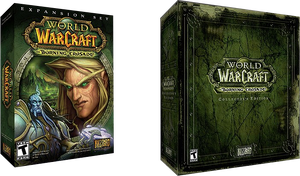
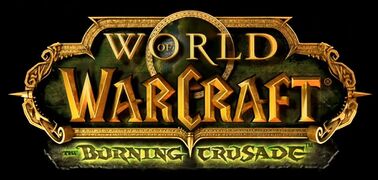
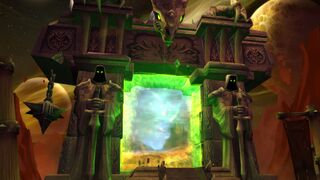
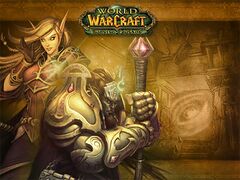
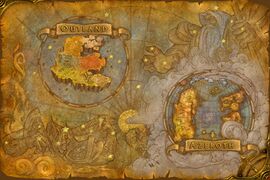
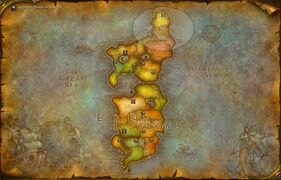
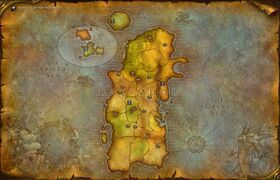
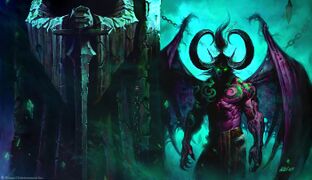
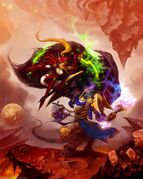
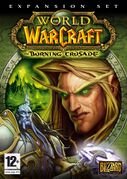
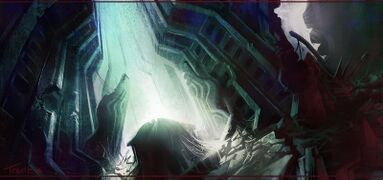
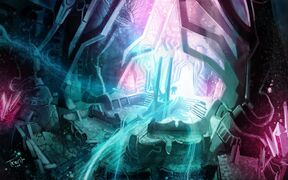
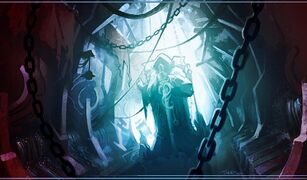
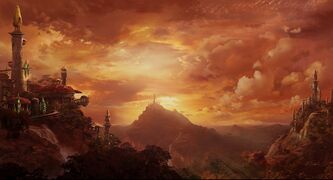
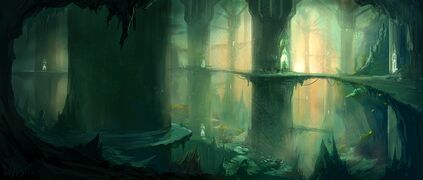
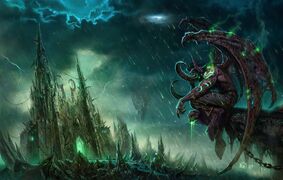
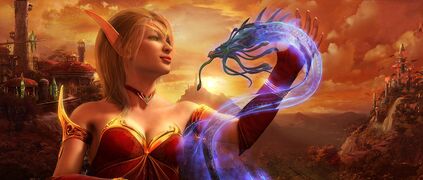
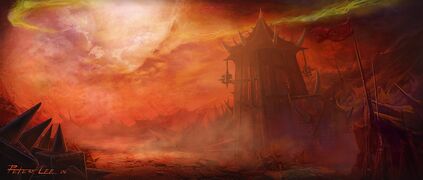
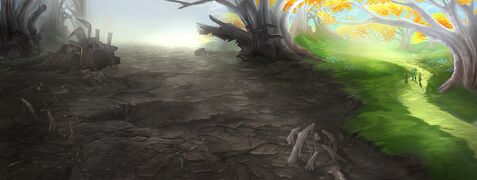
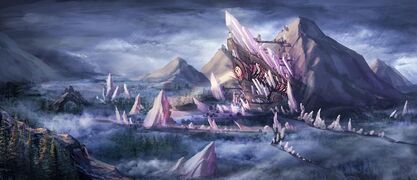
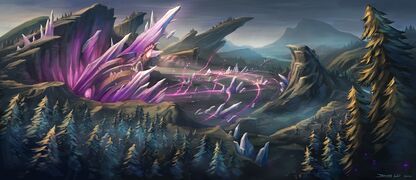
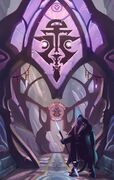
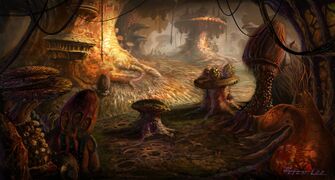
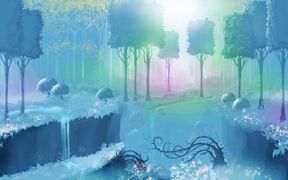
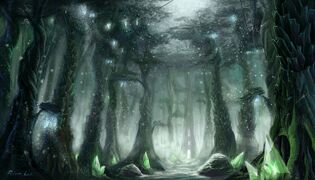
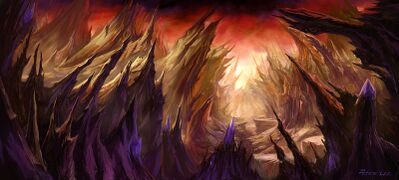
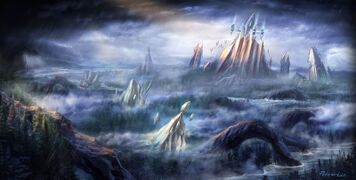
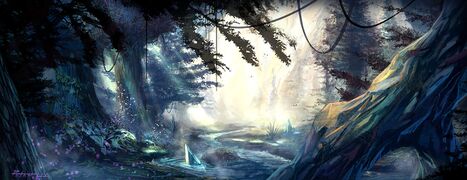
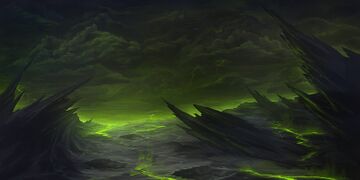
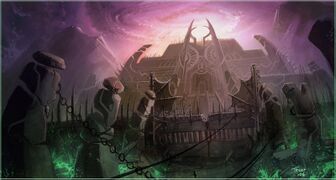
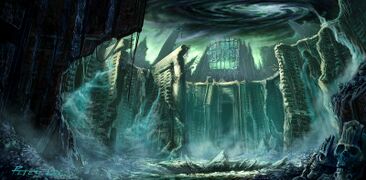
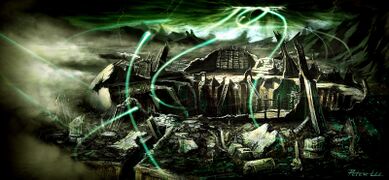
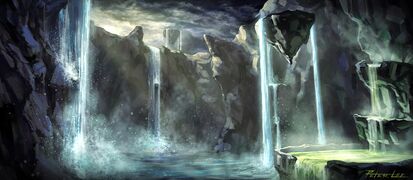
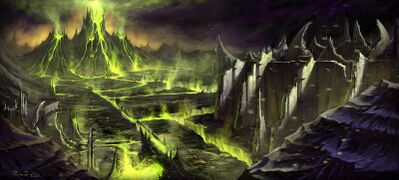
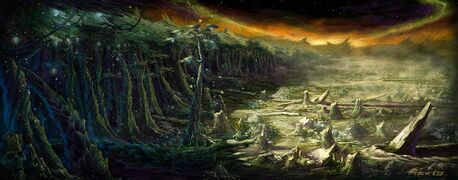
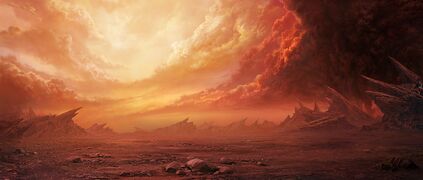
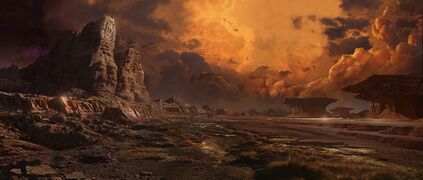
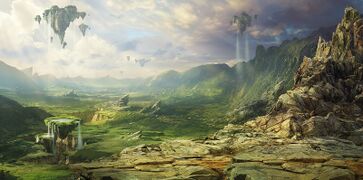
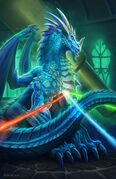
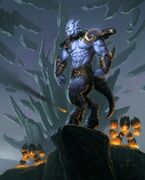
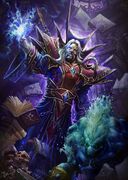
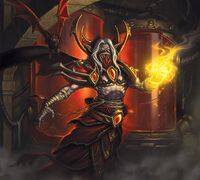
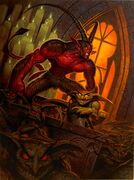
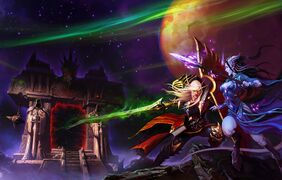
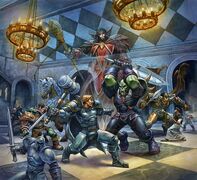
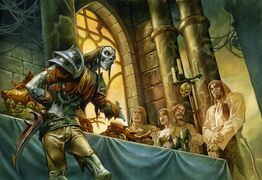
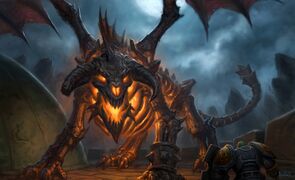
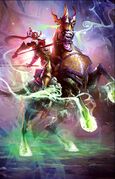
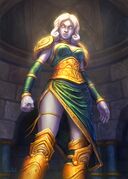
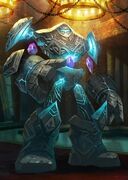
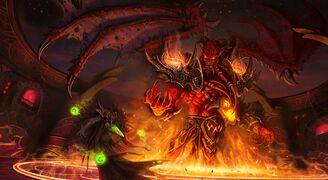
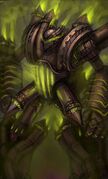
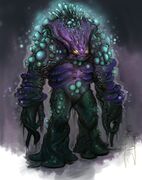
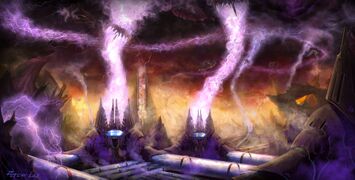
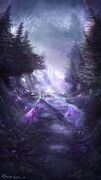
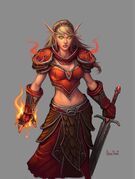
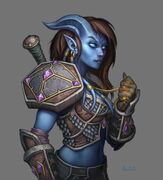
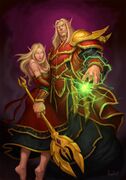
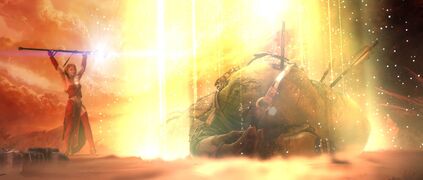
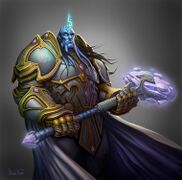
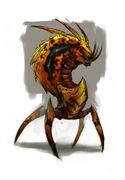
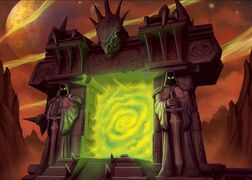
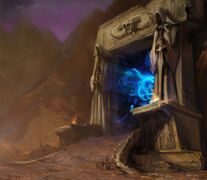
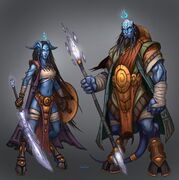
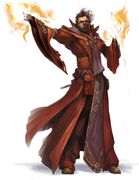
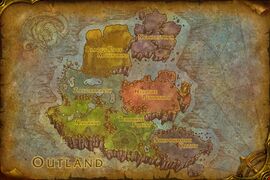
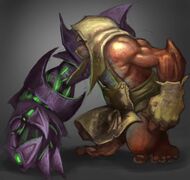
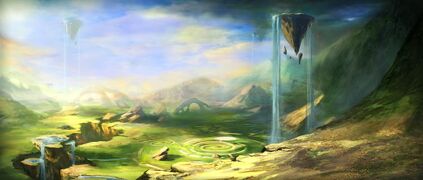
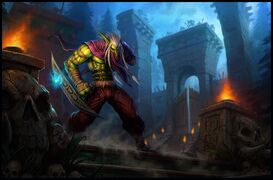
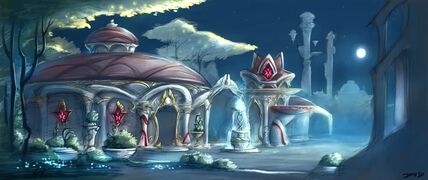
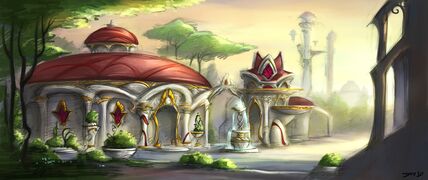
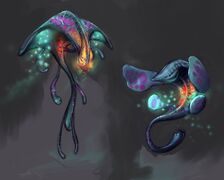
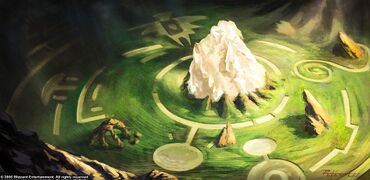
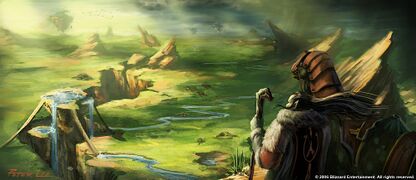
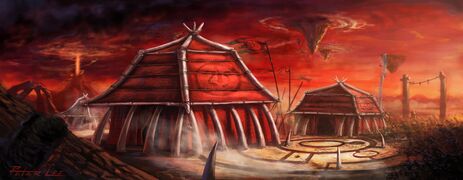
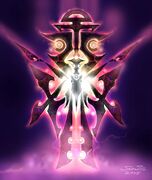
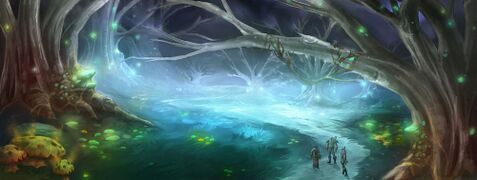
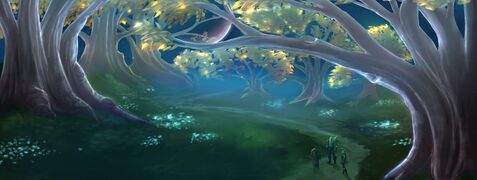
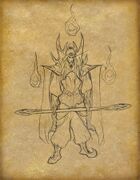
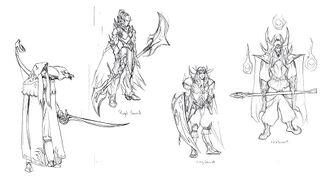

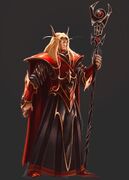
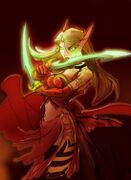
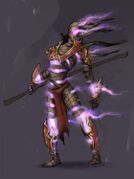
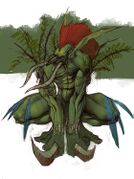
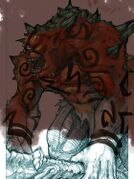
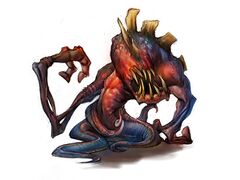
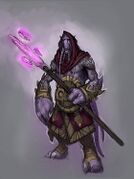
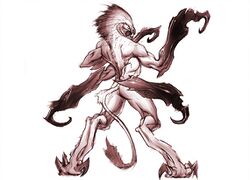
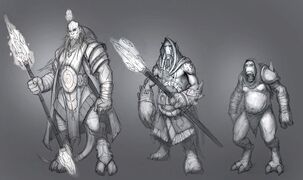
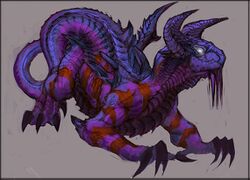
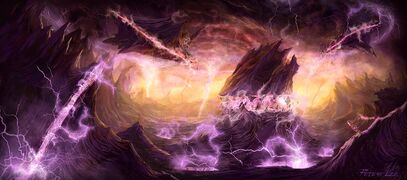
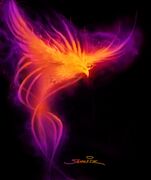
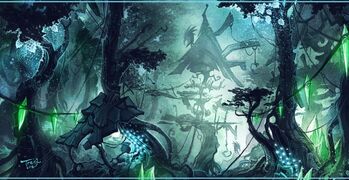

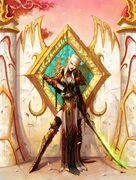
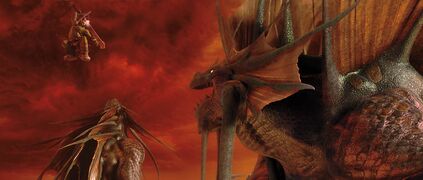
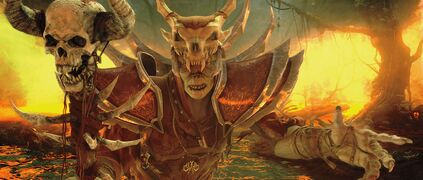
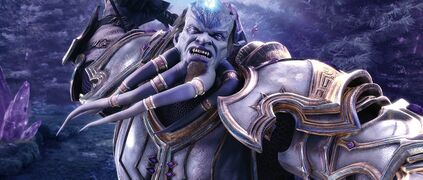
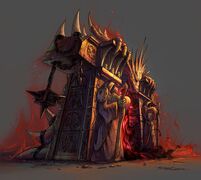
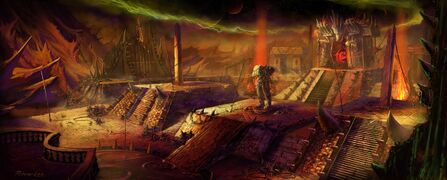
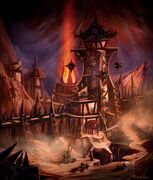
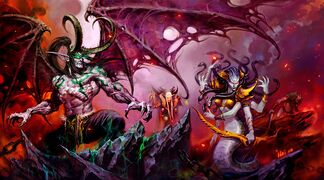
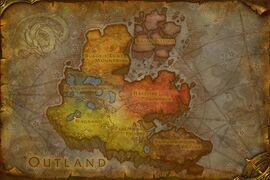
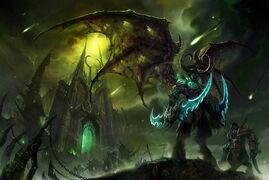
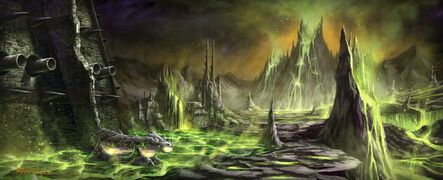
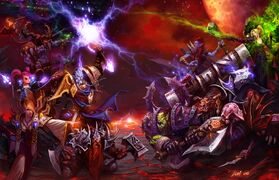
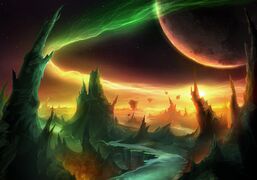
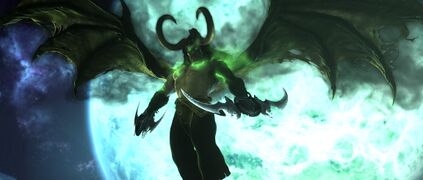
![[Polymorph] Cinematic](/images/thumb/8/86/Polymorph-bc-cinematic.jpg/423px-Polymorph-bc-cinematic.jpg)
